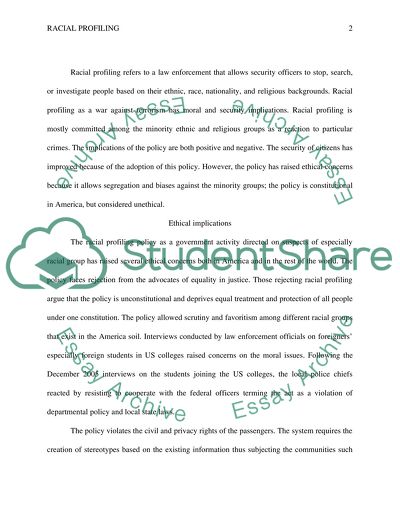Cite this document
(Racial Profiling Term Paper Example | Topics and Well Written Essays - 2266 words, n.d.)
Racial Profiling Term Paper Example | Topics and Well Written Essays - 2266 words. Retrieved from https://studentshare.org/sociology/1635952-racial-profiling-in-the-war-on-terrorism
Racial Profiling Term Paper Example | Topics and Well Written Essays - 2266 words. Retrieved from https://studentshare.org/sociology/1635952-racial-profiling-in-the-war-on-terrorism
(Racial Profiling Term Paper Example | Topics and Well Written Essays - 2266 Words)
Racial Profiling Term Paper Example | Topics and Well Written Essays - 2266 Words. https://studentshare.org/sociology/1635952-racial-profiling-in-the-war-on-terrorism.
Racial Profiling Term Paper Example | Topics and Well Written Essays - 2266 Words. https://studentshare.org/sociology/1635952-racial-profiling-in-the-war-on-terrorism.
“Racial Profiling Term Paper Example | Topics and Well Written Essays - 2266 Words”, n.d. https://studentshare.org/sociology/1635952-racial-profiling-in-the-war-on-terrorism.


